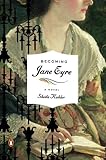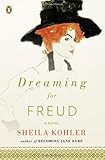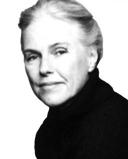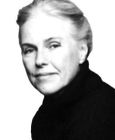Freudian Psychology
How to Obtain Pleasure in Life
What gives us the most pleasure and how can we get it?
Posted September 12, 2014
When I asked my husband this question in the kitchen yesterday afternoon: “What gives people pleasure in life? ” he looked at me, grinned, and said, “Marrying a sexy wife,” and that gave me pleasure! We laughed, and I thought of how pleasure so often comes in these small moments in life, small blessings: the cessation of pain, for example, if we have been suffering, what the French call le silence des organes ( the silence of the organs) ; a day of rest after weeks of hard work; a good night of sleep after many sleepless ones, a moment of praise from someone we admire; a moment of affection from someone we love; a joke with a friend.
Of course, there are the grand joys which don’t come often. My husband often describes the high he experienced after the birth of his two boys. For days after their births he said he literally felt he was walking around on air. I remember thinking similarly that they must have given me a drug in the hospital after having my babies, to feel so amazingly well, “high.”
But these big moments are rare in life and the small pleasures are the ones we can count on, and they are often easily acquired without money or youth or even success. Of course, we need to overcome our anxiety or guilt or whatever concerns us in order to feel free enough to take advantage of what life offers us often for free.
There are moments when one sees a particular quality to the light, a sort of white haze, often in the fall which gives me great pleasure, light and shadow of leaves on the white bark of a birch tree.
There are books, of course, which transport us outside of our own lives and take us off into someone else’s: the great books like “Anna Karenina,” “Madame Bovary” or even “Jane Eyre” and the well-plotted books like “The Talented Mr Ripley” by Patricia Highsmith or Donna Tart’s recent “The Goldfinch.”
There is music which moves us—Mozart’s pure melodies for example, music which fills us with the feeling we are hearing “the voice of God.”
There is food and drink: always something to be counted on, particularly if we don’t allow ourselves to eat or drink too much or too often. The greatest joys are sometimes the simplest: a piece of good crusty bread and butter; a piece of delicious cheese; a glass of bubbly cheap vino verde.
There is joy, of course, in giving pleasure to others. When I think back over the summer a couple of sparkling moments come to mind: swimming in the sea with my middle daughter; taking my eldest granddaughter to see “The Maids” though I’m afraid the sexually explicit moments may have shocked her. Still sitting there in the mezzanine and looking down at that wonderful stage set and Cate Blanchett striding around with Isabelle Huppert lying on a bed with her legs in the air. What a delight! How we laughed.
Or sitting all morning to get seats for "King Lear" in the park and swimming our way through the river of people attending the performance. How wonderful that so many people still enjoy Shakespeare! It was a pleasure in itself to see that. And the performance , those familiar and extraordinary lines and despite the violence of the play, the great joy of sharing it with my sixteen year old grand daughter who sat beside me equally enthralled.
Sheila Kohler is the author of many books including Becoming Jane Eyre and the recent Dreaming for Freud.
She will teach a class at the Center for Fiction on The Writer in Fiction. Sign up NOW for the first class on September 17.
Becoming Jane Eyre: A Novel (Penguin Original) by Sheila Kohler Penguin Books click here
Dreaming for Freud: A Novel by Sheila Kohler Penguin Books click here




